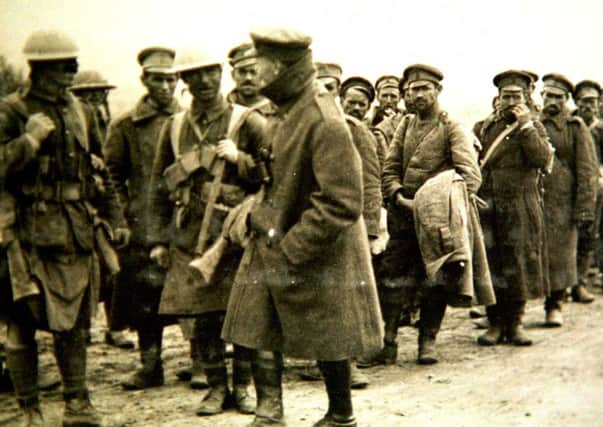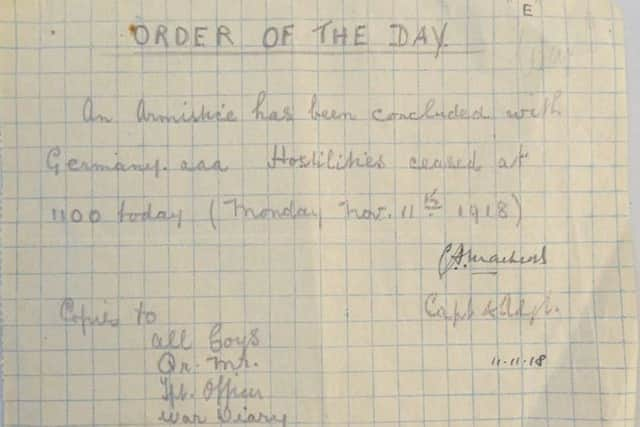The field order that said '˜the war is over'


But for weary men shivering in trenches, living in constant fear of sudden death or terrible injury, they were the most important words ever put to paper.
The Order of the Day note, in the collection of the Argyll and Sutherland Highlanders Museum, reads: “An Armistice has been concluded with Germany. Hostilities ceased at 1100 today (Monday, November 11th, 1918).”
Advertisement
Hide AdAdvertisement
Hide AdThe regiment field 21 1,000-man battalions during the war, and in the final phase of the war was struggling to find replacements for the steady stream of casualties.


Countless men from Falkirk and surrounding towns fought in its ranks, some - whose stories have featured in recent editions of the Falkirk Herald - never came home.
There were major and spontaneous celebrations in Falkirk when news of the peace was finally confirmed, but as in communities across Britain the cost had been drastic and devastating.
Families were destroyed, children left fatherless and wives made widows, with some small rural communities losing all of their young men.
Advertisement
Hide AdAdvertisement
Hide AdOverall losses during the Great War are regularly revised, as the available data is complex, but up to a million British men may have died while perhaps 1.6million were wounded.
Of these perhaps 134,000 were from Scottish units, although again the figures are continually being reassessed - there were Englishmen (and Irishmen, etc) in Scottish units.
There were also many Scots in units formed down south, such as the heroic London Scottish - but also first or second generation Scots in Canadian units.
Austria-Hungary, which started the war and was destroyed by it, lost perhaps 3.6million men, while France and Germany each lost more than four million.
Advertisement
Hide AdAdvertisement
Hide AdThe Russian Empire lost anything up to five million, but the true loss is unquantifiable as Russia’s war (and empire) ended in a Bolshevik coup which took her forces out of the conflict - and into a civil war that lasted until the early 1920’s.
Globally there may have been as many as 40 million casualties, of whom up to 23 million were dead.